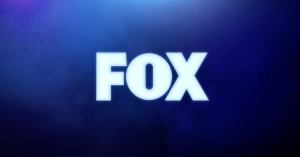Fight Club celebrated its 20th anniversary on Oct. 15, and since then the David Fincher-directed film adaptation of Chuck Palahniuk’s novel has held onto its status as a cult classic. The film was originally a box office disappointment, but one famous person — Rosie O’Donnell — did see it, and spoiled the big twist on her daytime talk show. Star Brad Pitt was horrified, admitting on the 2000 DVD commentary it was “unforgivable.”
“I guess that is OK she hated it. She was saying this movie disturbed [her], she could not sleep for nights,” Pitt said of O’Donnell, notes The Hollywood Reporter. “It hit a nerve. It struck some nerve whether she wanted to look at it or not. But the deal was, she gave away the ending on national television. That’s just unforgivable.”
Videos by PopCulture.com
Pitt was not the only person involved in Fight Club horrified to hear O’Donnell spill the beans on one of the great twist endings. Holt McCallany, who now stars in the Fincher-produced Mindhunter, saw the episode of O’Donnell’s show at a doctor’s office.
“I just remember being absolutely flabbergasted — it was stunning to me,” McCallany told THR. “I remember being infuriated by her remarks and wondering why she felt the need to do that.”
O’Donnell saw Fight Club before anyone in her audience had the chance. She attended one of 20th Century Fox’s early screenings and hated it so much she wanted to stop her audience from even seeing it.
“I had met her once or twice in New York City at events, and I had no reason to dislike her, but when you start to willfully damage the commercial prospects of the work of other artists, you have to expect that that is going to inspire a very dim view,” McCallany said.
Bill Mechanic, who greenlighted Fight Club during his tenure at Fox, told THR he did not believe O’Donnell was responsible for the film’s disappointing box office totals. Although Fight Club crossed the $100 million mark worldwide, it was considered a disappointment at the time for a movie starring Pitt and Edward Norton.
“Two things: It was [made for] a younger demographic, so [O’Donnell] going to the housewives during the day on that movie couldn’t have mattered less,” Mechanic explained. “And the second thing: The movie didn’t depend on the surprise ending. The movie stood on its own. Getting the audience to go see the movie was a different thing.”
“We had a number of commentators, not film critics … who were openly antagonistic, despairing, trying to shoot down the movie before it opened,” Mechanic continued.
Fight Club went on to find its audience anyway, thanks to its revolutionary home video release in 2000. Fincher was heavily involved in the film’s original DVD release, overseeing a two-disc edition that was stacked with extras and multiple commentary tracks. Even the unique packaging was part of Fincher’s plan for the release.
The movie still inspires debate, 20 years after its release, proving its staying power.
“We were making a satire,” Fincher told Brian Raftery in the book Best. Movie. Ever. “We were saying ‘This is as serious about blowing up buildings as The Graduate is about f– your mom’s friend.’”
Photo credit: 20th Century Fox
Most Viewed
-

Beverly Hills, CA – January 31, 2026: Jelly Roll, left, and Bunnie Xo, right, pose for portraits on the red carpet during the 68th GRAMMY Awards Pre-GRAMMY Gala & GRAMMY Salute to Industry Icons Honoring Avery Lipman & Monte Lipman at the Beverly Hilton on Saturday, Jan. 31, 2026 in Beverly Hills, CA. Clive Davis’ annual pre-Grammy party hosts an array of A-listers from entertainment, sports, and politics to come together and enjoy performances. (Kayla Bartkowski/ Los Angeles Times) -

WINDSOR, UNITED KINGDOM – APRIL 20: (EMBARGOED FOR PUBLICATION IN UK NEWSPAPERS UNTIL 24 HOURS AFTER CREATE DATE AND TIME) Prince Andrew, Duke of York attends the traditional Easter Sunday Mattins Service at St George's Chapel, Windsor Castle on April 20, 2025 in Windsor, England. (Photo by Max Mumby/Indigo/Getty Images) -

PARK CITY, UTAH – JANUARY 25: Brandi Glanville attends the PBM Princess x Kemo Sabe red carpet event special screening of Rachel Strauss’ Documentary "Side Effects May Include” during Sundance Film Festival on January 25, 2026 in Park City, Utah. (Photo by Tommaso Boddi/Getty Images for Rachel Strauss)





